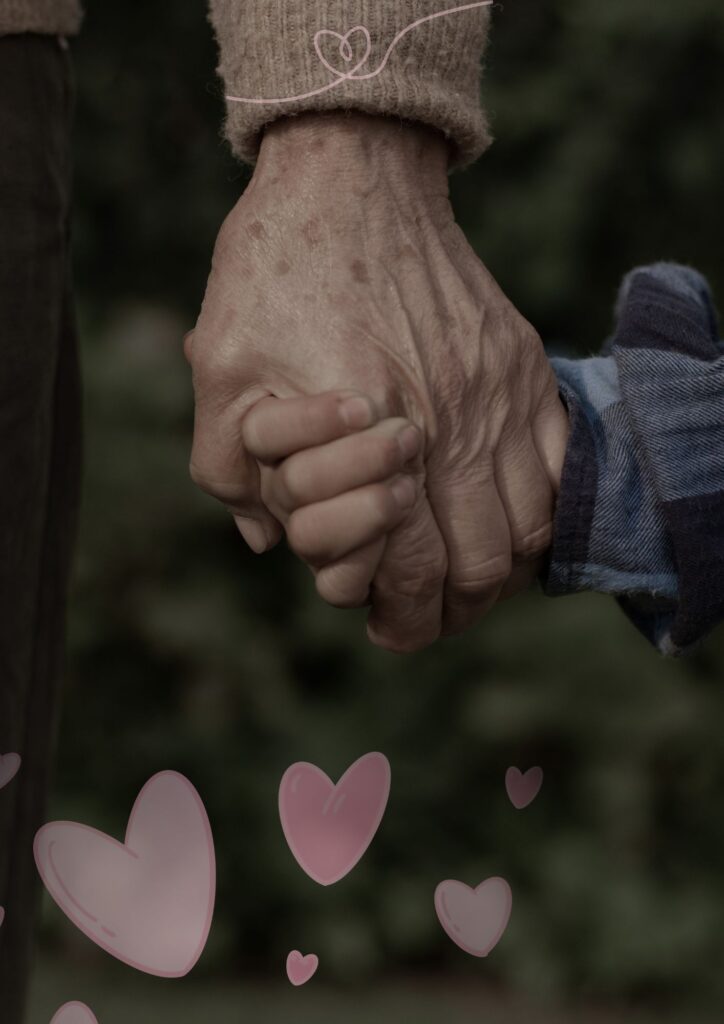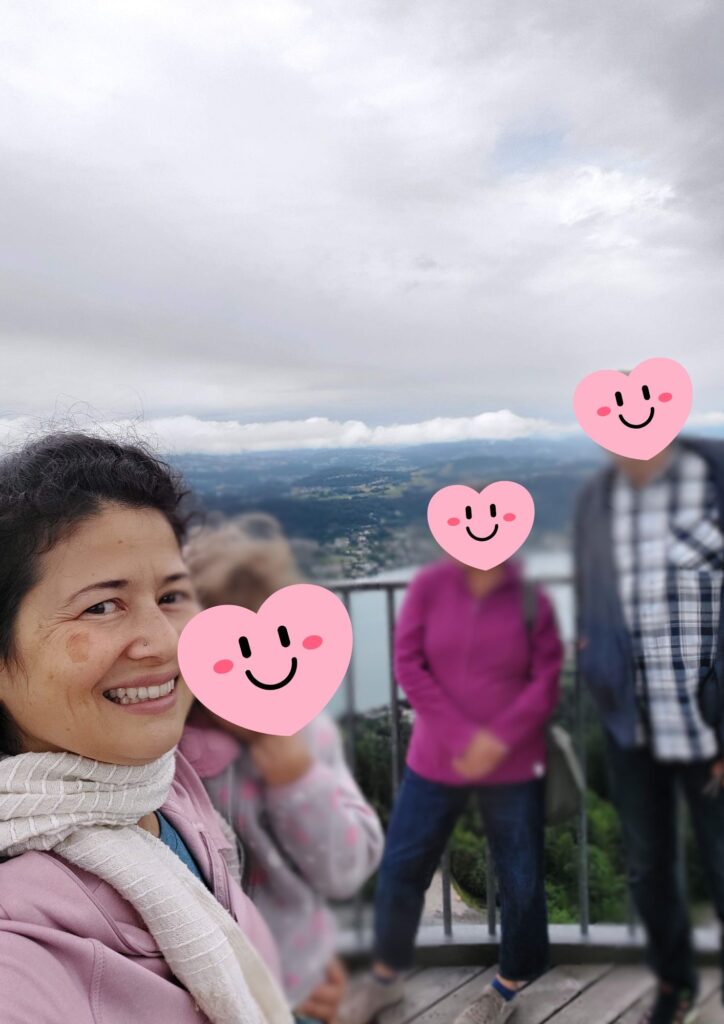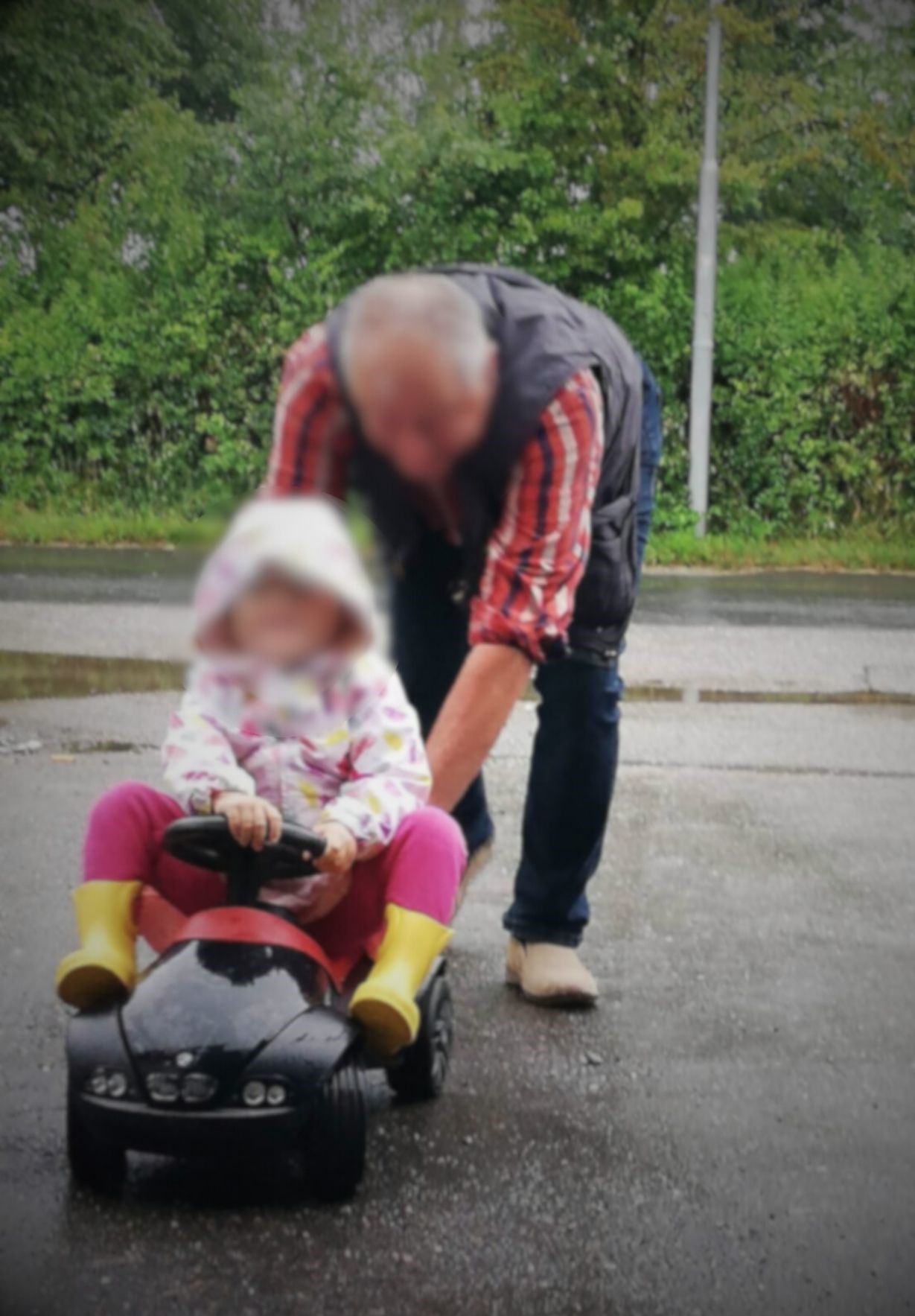Family Dynamics When Grandparents Enter the Picture
“You must say please and thank you, and you must always obey your mom. Now let grandma get you that spoon.” My mom’s voice rings through their kitchen as she reaches for that one pink plastic spoon, the little one’s coveted treasure, and I catch myself holding my breath. I force an exhale. It’s such a small moment – a grandmother teaching manners to her beloved grandchild – and yet here I am, tensing at these well-meaning words. Not sure about you, but navigating parenthood alongside grandparents was definitely not part of the pregnancy lit I devoured.
The thing is, having kids naturally pulls families closer. Suddenly, those sporadic calls become weekly check-ins, and rare visits transform into Sunday invites and childcare coordination. It’s beautiful. And complicated. And sometimes overwhelming.
The Dance of Three Generations
Last weekend, my mom, my dad and I spent an hour teaching my 4-year-old a way-too-difficult card game, just like I’ve been taught by my grandpa as a child. It was adorable, both the patience and care they brought to the table, and how she shined. I smiled as it brought up memories of me playing with “the grown-ups,” feeling like one of them, as a child, barely able to hold my share of cards. An hour later, that magic was gone as I was gritting my teeth when my mom explained that those bits on her plate weren’t really meat. I felt this old hurt of my boundaries not being taken seriously. Sigh. What to do? – Both moments are equally real, equally valid parts of this grand experiment we call extended family life.
Our Ancient Need for Village
We’re biologically wired for this closeness. And I, at least, really want to have my child’s grandparents (on both sides) actively involved. Way back, all our ancestors raised children in tight-knit groups, so it makes sense that, despite the modern-day flagship of personal independence, something in us holds on to that village. When my daughter was born, I found myself wanting to be mothered and cared for, just like I imagined women in the “olden days” caring for new mothers. I wanted to find out all about the wisdom of the ages around child rearing. I wanted the village, and like all new parents, I wanted to get it all right.
When Love Meets Triggers
So here’s where it gets tricky. The same closeness that provides support can also trigger old patterns faster than you can say “but that’s not how we want to do it.” Every well-meaning suggestion about sleep training, every raised eyebrow about feeding practices, every “with my children” story can feel like a judgment on our parenting choices (and attempts!).
I remember one visit to my in-laws, whom I love and respect dearly. We had late nights, partially because, well, we had late nights, and partially because visiting them changed our routines. Hours into the evening, after watching my overtired two-year-old bounce around with excitement, Grandma finally said it: “when are you gonna get this child to bed!” I caught my breath, stunned, then attempted to breathe out peacefully. Yes, she was right – the child needed sleep. I was the mom, responsible for getting her to bed. I felt stepped on, felt wronged and helpless. Only afterward did I realize that having another grown-up voice probably helped get the message across. Such little moments capture the whole beautiful mess of intergenerational relationships.

Finding Peace in the Chaos: Yogic and Buddhist Perspectives
This is where yoga, meditation and Buddhist perspectives have been my lifelines. Not because they make me a perfectly peaceful person (ha!), but because they remind me to pause. To breathe. To notice the tightness in my chest or the clenching in my jaw before I react. To remember that everyone here is doing their best, operating from their own place of love and concern.
What Would My Grandparenting Look Like?
Sometimes, when I’m particularly triggered by something my parents say or do, I try to zoom out and imagine my daughter, some twenty-five years from now, dealing with me as a grandmother. (Will I be able to resist reorganizing her kitchen? Interfering with her snack boxes? Commenting on the parenting choices she makes? Or will I be able to be there, hold space, be supportive and let her be at her best.) It helps me find compassion for everyone involved – including myself.
And What If the Unthinkable Happens?
But here’s the thing that really shifted my perspective: last year, a friend of mine passed away suddenly. Here, a four-year-old lost her mom, a grandma lost her only daughter, and I, even though we hadn’t even been that close, was shaken to the core. What about all the moments they’d never have together? It hit me – all these small irritations and tensions? Are they worth it? And yet, if you look at the opportunity they provide, they’re actually precious in their own way. Though they may come across as clumsy, stifling or blunt, they’re proof of presence, of involvement, of care. They’re saying: you’re not alone in this. Let us work it out together. And seen from that perspective, they answer a deeply-held wish of mine. For it is that village that we all need.
I find it really helpful to remind myself of the Buddhist teaching on impermanence: nothing and no one lasts forever. These moments with my parents, as imperfect as they may be, are finite. When I breathe into that awareness, none of the points of tension are less valid, and yet I find myself more able to appreciate their presence, quirks and all.
4 Things to Do In the Heat of the Moment:
When family dynamics get intense, these simple practices help ground me:
- Taking a moment to feel my feet on the floor, connect to the ground.
- Remembering that “thank you for the suggestion” is a complete response.
- Letting opinions be just that, nothing more – opinions, yours and theirs.
- Focusing on one thing I appreciate about that family member rather than letting my hurt take over.
5 Tips for Building Long-Term Resilience:
For lasting peace within family dynamics, I’ve learned to:
- Honor my need for quiet time, especially as an introvert. Make it a priority. (Remember: a need is not a want. If you don’t uphold it, no one else will.)
- Set clear boundaries without explanation – a simple “please don’t do this” is enough.
- Create small, personal rituals that bring joy and lightness – like hanging laundry with colors coordinated or humming while cooking. Find your thing.
- Return to my spiritual practice, even if it looks (very!) different now as a mom. This is your “investment” in the foundation of all things calm and zen. It doesn’t help doing it in moments of stress only – it really needs its time to sink in.
- Remember the impermanence of it all. Everything passes, everything is connected. Contemplating the Buddhist principle of impermanence in all its many ways really helps link wisdom and compassion. For all, including yourself.

Learning to Focus on What’s Working
These days, I try to focus more on what’s working. We’re wired to scan for problems, so I need to make an extra effort to see what’s there and what’s wholesome. Like how my mom at seventy-plus is on the floor on all-fours, playing horse and making her giggle. How my dad was the first in my family to get her to fall asleep, sitting on the Hollywood swing singing songs. Or how her other grandpa would let her “teach” him how to play puzzle, and her other grandma would make her feel like a star, letting her go through her necklace collection and wear her favorite pieces. Besides the parents, no one loves your kids like the grannies do.
The Buddhist concept of the preciousness of life has been particularly helpful – the idea that we are given this body, this life, and it’s so short that we get to choose what we focus on. It doesn’t mean we never get upset or ignore our emotions; it means we learn to breathe and center, know that everything passes, and let opinions be opinions.
Remember – This Is About Love
At the end of the day, this is about love – messy, imperfect, sometimes annoying, but precious love. Or, more fitting, loving kindness. The kind that shows up with a meal when you’re sick, that remembers your child’s favorite song and sings along (even and especially when it’s a Christmas song sung in June), that holds space for your family’s story to unfold across generations.
So the next time your mother-in-law comments on your baby’s socks (or lack thereof), or your dad starts a sentence with “back in our day,” take a deep breath. Remember that this too is part of the journey. And maybe, just maybe, there’s something beautiful about all of us figuring it out together.
Changing Family Dynamics: Let the Magic Start With You
As I continue to navigate this journey of three generations dancing together, I’ve found that the most profound shifts happen when we combine ancient wisdom with practical tools. My background in Yoga, Buddhism and nervous-system-based somatic practices have really helped me navigate the waters of inter-generational family life.
At the end of the day, life is short, and the people we love won’t always be here. This awareness shifts everything. Those small annoyances – those clumsy, stifling, or blunt moments – become less about irritation and more about the preciousness of connection. When we hold space for our family’s imperfections and love, we learn to hold that space for us, too – and vice versa. This is an inter-generational gift we do want to pass on to the next generation.
It’s Not About Gritting Your Teeth Through Family Gatherings
It’s not about surviving family gatherings or gritting our teeth through triggering moments – it’s about transforming these challenges into opportunities for deeper connection and personal growth. When we learn to hold space for both our own emotions and our family’s well-meaning interventions, something magical happens: we create a new legacy of conscious family relationships, one breath at a time.
Change doesn’t happen overnight, but it can start with small shifts – your own quiet decisions to do things differently. You have the power to break old patterns, to create a family dynamic that feels more conscious, more balanced, and uniquely yours. And as always, no one’s at fault – not them, and definitely not you.
The Magic
But here’s the magic: when you approach your spiritual practice with care and consistency, that change begins to ripple outward. Your breath, your pauses, your choice to respond rather than react – it all sets the tone for something new to unfold. A legacy of kindness, love, and presence. One breath, one moment, one step at a time.
